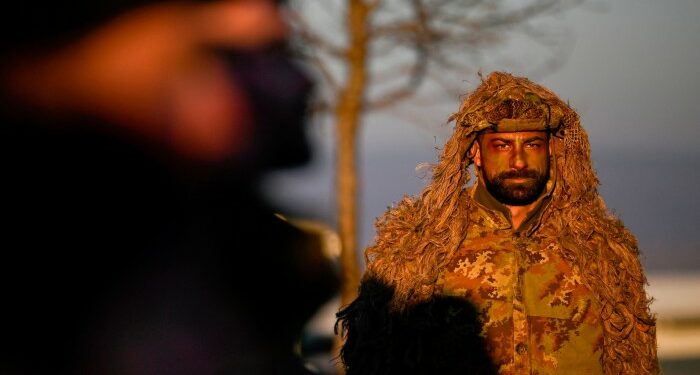Your guide to what the 2024 US election means for Washington and the world
The writer is senior fellow in the American Statecraft Program at the Carnegie Endowment for International Peace and the author of ‘Tomorrow, the World: The Birth of US Global Supremacy’
In Europe, the race is on. Leaders are once again scrambling to get into the good-enough graces of president-elect Donald Trump to keep the US committed to their security for four more years. But they are grasping for a security umbrella that flew away long ago. For a generation, the US has been the dominant military power in Europe in every respect except the most crucial: being willing to uphold defence commitments by fighting at significant cost. Trump reflects this problem, but he didn’t cause it.
During the cold war, fine minds on both sides of the Atlantic persistently wondered whether Washington would really risk trading Boston for Berlin. Its security commitment nonetheless remained credible enough. Americans took on obligations whose price they understood, having recently fought two major wars in Europe. They also faced a communist adversary whose conventional forces were capable of overrunning the entire continent.
After the cold war, however, the rationale for US military dominance in Europe flipped. Threats were now so minuscule that America’s military burden seemed hardly burdensome at all. In return for low costs, the US obtained the modest benefits of supporting market democracies in east-central Europe and stabilising the Balkans. Washington even backed the open-ended enlargement of Nato, bringing the alliance from 16 members in 1990 to 32 today. It did so not out of any resolve to defend the countries to which it nominally offered protection, but in the belief that once it offered protection, no attack would ever occur to force its hand.
Consider the US Senate’s unanimous ratification in 2003 of Nato’s “big bang”, which brought in seven countries, including the three small Baltic ones along Russia’s border. The senators scarcely considered whether the US would or should defend the countries if ever invaded by Russia. That’s why they voted in unison: they saw enlargement as a symbolic gesture to gain support for America’s global leadership and war on terror.
Europeans believed they were at peace because power politics had ended. Americans thought the US was so powerful that no one would dare challenge it. But they were all indulging in the same magical thinking — that the very act of bringing countries into Nato meant they would never need to be defended. This thinking persists, conspicuously deployed by those advocating for Ukraine’s admission into an alliance that has refused to fight for the country.
Today Europeans and Americans alike are awakening to the harsh dilemmas of geopolitics. For the first time since the cold war, the US is confronting what its actual defence perimeter should be based on present realities, rather than paper promises from past eras. When Trump contemplates not defending a Nato ally under attack, his scepticism better indicates how Americans will act in a crisis than President Joe Biden’s talk of a “sacred obligation”. Throughout the war in Ukraine, after all, two positions have enjoyed a wide and deep consensus in American politics: defence needs in Asia should take priority over those in Europe, and there must be no direct war with Russia.
If European leaders fixate on appeasing Trump, they will win a pyrrhic victory. They will spend more on their militaries, but buy American and remain dependent on the US for combat capabilities, manpower and leadership. That’s a bad deal. Better to work to America-proof, not Trump-proof, European defence. They should approach the new administration with a plan to replace many US troops in Europe and develop capabilities to wage high-intensity warfare. In return, Trump should agree to stay within Nato to enable a responsible security transition over the next decade. If his administration really wants Europe to secure itself, it should get behind EU efforts to stimulate European defence production.
As Ukrainians confront ceasefire negotiations, they must appreciate that a US security guarantee is no deus ex machina. An overstretched superpower that isn’t fighting for them now is not likely to fight for them later. Nor will that point elude Moscow. Kyiv’s best bet is to keep building its formidable defences and obtain assurances that its western partners will send aid again if Russia reinvades. This would present the Kremlin with a high likelihood of major costs for dubious gains.
The US has not really underwritten European security for decades. No matter what happens next, European defence depends on Europeans themselves. The choice is to accept and shape that reality, or to keep chasing a mirage until it is revealed as such at the worst possible moment.
Source link : http://www.bing.com/news/apiclick.aspx?ref=FexRss&aid=&tid=677235ad37d64e988f5f984732f9c049&url=https%3A%2F%2Fwww.ft.com%2Fcontent%2Fd8e4fc3c-a652-449e-bf92-276f2de4830d&c=11652393806035013473&mkt=de-de
Author :
Publish date : 2024-12-29 21:00:00
Copyright for syndicated content belongs to the linked Source.



